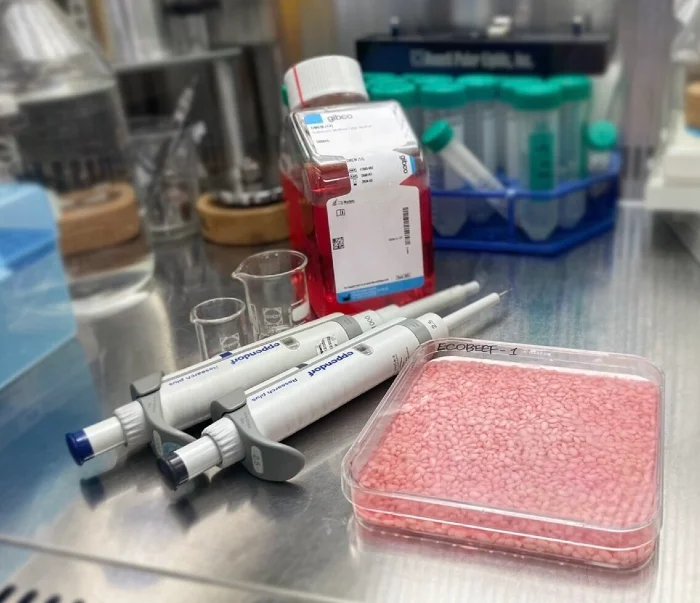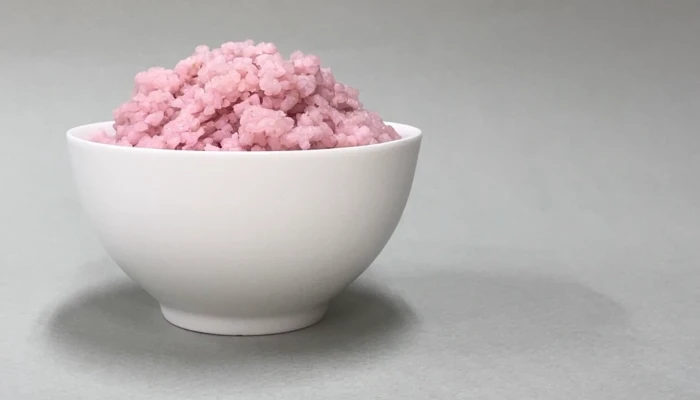South Korean scientists have made a breakthrough in sustainable food production by creating a “meaty” rice. This innovative food, developed by researchers at Yonsei University in Seoul, combines beef muscle and fat cells with rice grains, offering a potential solution to food shortages and environmental concerns.
The lab-grown pink grain is packed with nutrients and aims to provide a cheaper, eco-friendly alternative to traditional meat.
Park So-hyeon, a co-author of the study, spoke of the dual benefits of this hybrid rice.
“Imagine obtaining all the nutrients we need from cell-cultured protein rice. Rice already has a high nutrient level, but adding cells from livestock can further boost it,” she said, emphasizing how combining rice with livestock cells could enhance its nutritional value.
This development, detailed in the Matter journal, involves coating rice grains with fish gelatin to anchor the beef cells, then culturing them for up to 11 days.

The result?
A rice that’s not only more nutritious, with 8 percent more protein and 7 percent more fat than standard rice but also firmer and more brittle.
More importantly, this method significantly reduces the carbon footprint associated with traditional livestock farming, which is resource-intensive and a major greenhouse gas emitter.
The environmental benefits are clear: producing 100g of this protein-rich rice emits just 6.27 kilograms of carbon dioxide, far less than the emissions from beef production. Economically, it’s a game-changer for Korean consumers, potentially costing just $2.23 per kilo compared to beef’s $15.
Looking ahead, the team aims to refine the process to enhance the nutritional value of the rice before it hits the market. Park sees vast potential for this hybrid food, from addressing famine and serving as military rations to possibly becoming a staple in space exploration.
More To Discover
- Beneath Our Feet: Earth’s Busiest Habitat Is In Danger
- Scientists Unlock Circular Recycling for One Of The Most Common Plastics
- Lego’s Environmental Pivot: The Company Is Facing The Harsh Realities of Sustainable Plastics And Taking A Stand Against Greenwashing
- Report Reveals Over Half of U.S. ‘Climate-Smart’ Farm Funds Do Nothing
“Now I see a world of possibilities for this grain-based hybrid food. It could one day serve as food relief for famine, military ration, or even space food, ” Park stated.
Source: Matter



















